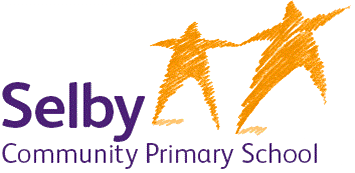The Curriculum is based around reading and vocabulary, as we believe these are the fundamental building blocks to knowledge acquisition and learning. Research has shown that the key to ensuring learning moves into the long-term memory is through establishing children have the relevant knowledge to build upon. Those children who have more knowledge and vocabulary make greater progress, without this background knowledge it is harder for children to transfer their learning into long-term memory. ‘The correlation between vocabulary size and life chances are as firm as any in educational research’ (OFSTED). Given the context of our school, it is therefore imperative that our curriculum offers a systematic process that allows children to acquire vocabulary and knowledge progressively as they move through school.
There are strong systems in place to ensure that children acquire knowledge and vocabulary in an appropriately progressive manner. Literacy is taught consistently through the Talk4writing approach. Maths is taught using the Singapore approach using the Maths No problem scheme. Reading is taught using the holistic talk for reading approach, which runs alongside our ‘Sounds Write’ phonics programme. Sounds Write is used throughout EYFS, KS1 and is the basis of teaching spelling in KS2. These all have very clear progression systems and provide a framework for learning which ensures that the knowledge is transferred into the long-term memory.
As a school we have developed yearly expectations for each subject which also includes a clear definition of what mastery looks like. This ensures there is a clear progression in everything that we do which builds on prior learning and allows knowledge to be transferred into the long-term memory. We have created a series of vocabulary lists for each year group in each subject, which will ensure that subject specific words are taught systematically with the aim of closing the knowledge gap. These words are revisited and consolidated through mini quizzes throughout the children’s time in school.
Each year group has a separate curriculum and separate topic title which helps tie in the individual subjects under one umbrella. Meaningful links are encouraged to be found between subjects but not to the detriment of individual subjects.
The knowledge base that the children acquire is based on the National Curriculum. The sequence of the knowledge and skills content has been carefully planned to ensure they are built upon over the course of an individual year and over a period of a number of years. Subject knowledge banks have been developed for every unit of work. The key knowledge contained within them is what the children learn and is continually revisited in order to transfer the knowledge into the long term memory.
In addition, we acknowledge that many of our children do not have the life experiences that you would expect for children of a primary school age. As a result, we have ensured that children as part of the curriculum have the entitlement to learn and participate in life skills, visits and experiences that we feel are fundamental to ensuring the children have a balanced education. Our visits are planned progressively and ensure that children over the course of their time here have a wide range of differing experiences. Similarly, life skills that the school identified as being key for our children and cooking experiences are integral to our curriculum.
Alongside this, we ensure that all children have opportunities to experience and become skilled at sports, music and the performing arts.
In partnership with Drax power station, all Key Stage 2 children take part in a variety of workshops run by Drax engineers. The purpose is to promote STEM subjects within the curriculum and highlight careers and opportunities of a major local employer.
Whilst we recognise the primacy of reading, writing and maths within our curriculum, we ensure that the depth of the other areas of the curriculum are suitably robust and progressive to ensure our children leave us having had an education that will allow them to become well rounded members of society.
